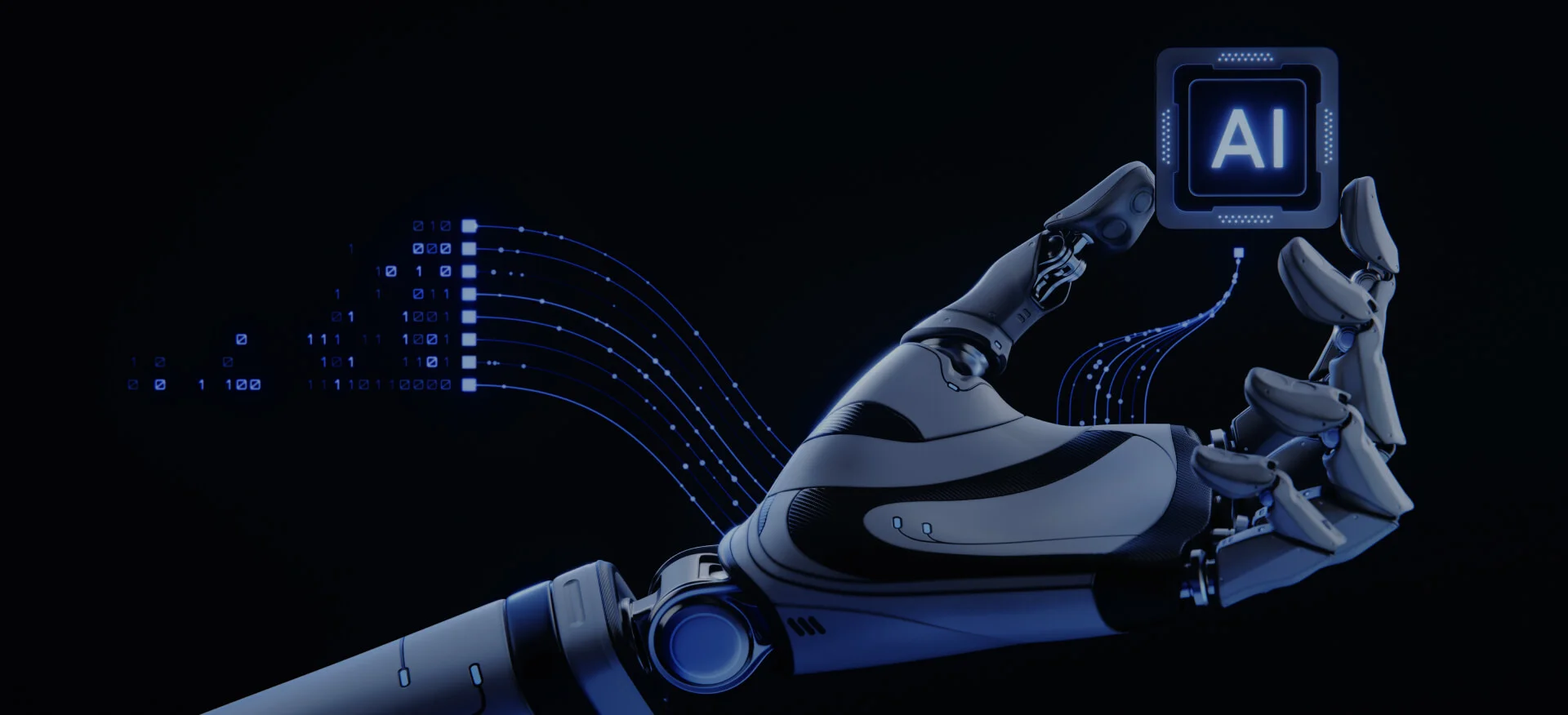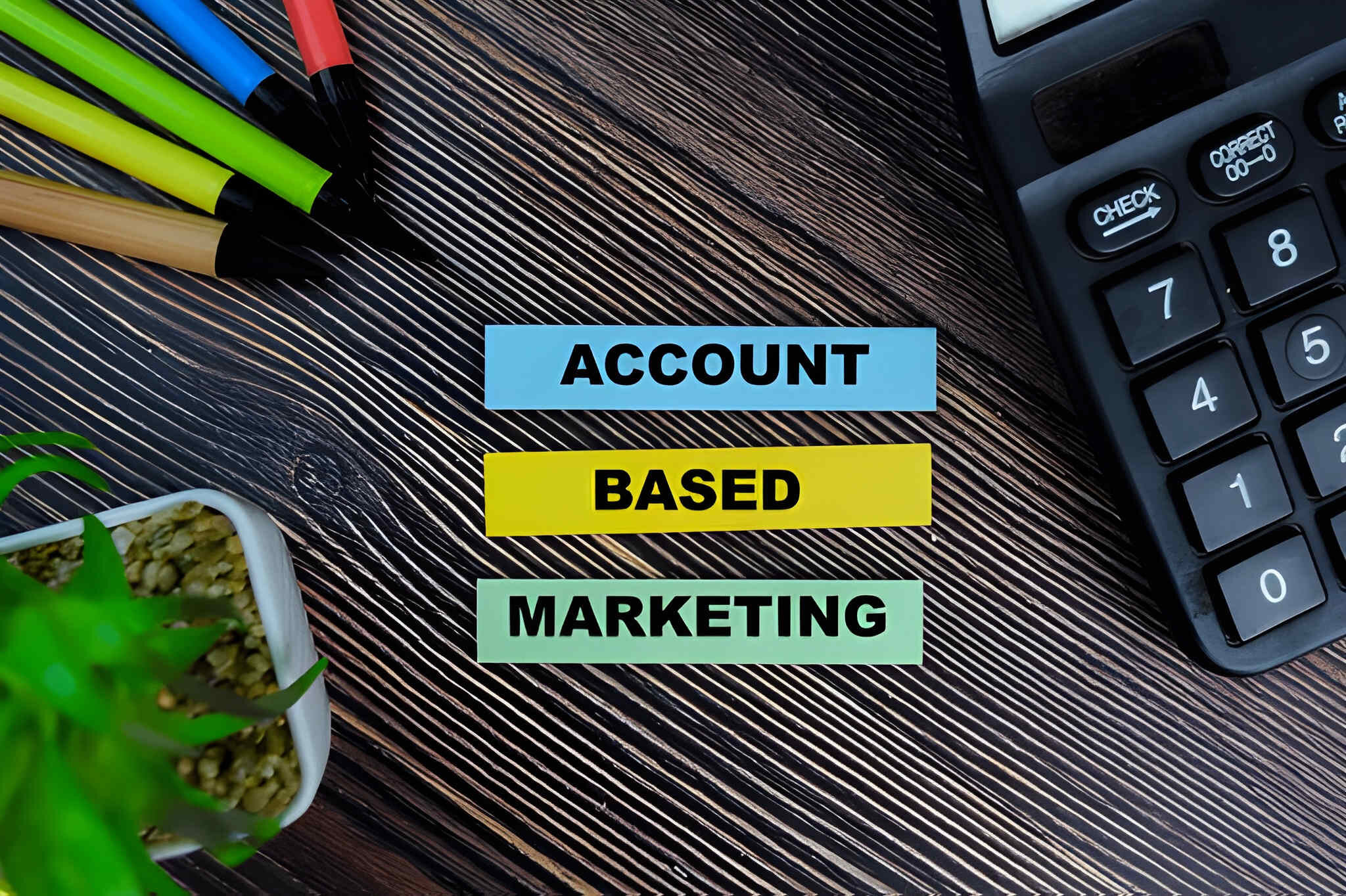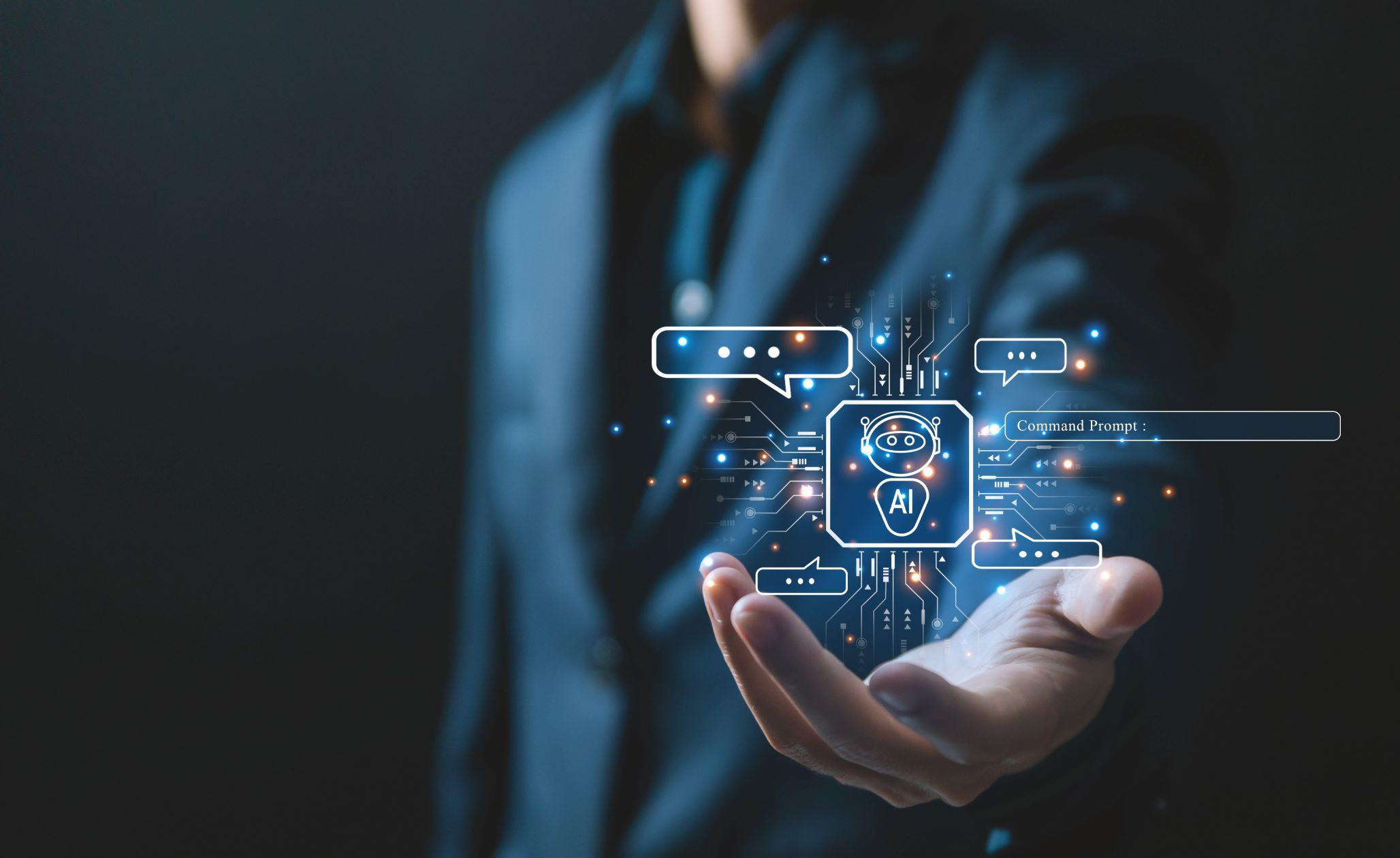Artificial Intelligence (AI) has shifted from a futuristic idea into a practical force that shapes daily life and business strategy. From voice assistants like Siri and Alexa to fraud detection in banking apps, AI technology has become a core part of how modern systems function.
But What Is AI Technology? At its simplest, AI technology refers to computer systems capable of performing tasks that normally require human intelligence.
These tasks range from understanding natural language and recognizing images to making predictions and decisions. Unlike traditional software that follows strict, rule-based programming,
AI systems can learn from data, adapt to new inputs, and improve their performance over time.
This capacity to evolve is what makes AI one of the most transformative technologies of our era. It’s not just about faster computing; it’s about creating machines that can think, learn, and solve problems in ways that support human goals.
What is AI Technology and How Does It Work?
AI technology refers to the use of artificial intelligence technology to create systems that can perform tasks that typically require human intelligence, such as learning, reasoning, and decision-making. AI technologies rely on advanced algorithms and large datasets to enable machines to recognize patterns, make predictions, and solve problems.
In the world of AI in tech, systems like machine learning and neural networks help machines learn from data and improve over time. Natural language processing (NLP) allows machines to understand and interact with human language, making AI more accessible. By constantly learning from new information, AI technology is transforming industries and driving innovation in everything from speech recognition to autonomous vehicles, showcasing the power and potential of AI technologies.
4 Key Components of AI Technology
AI is not a single technology, but a collection of interrelated fields that work together. Key components include:
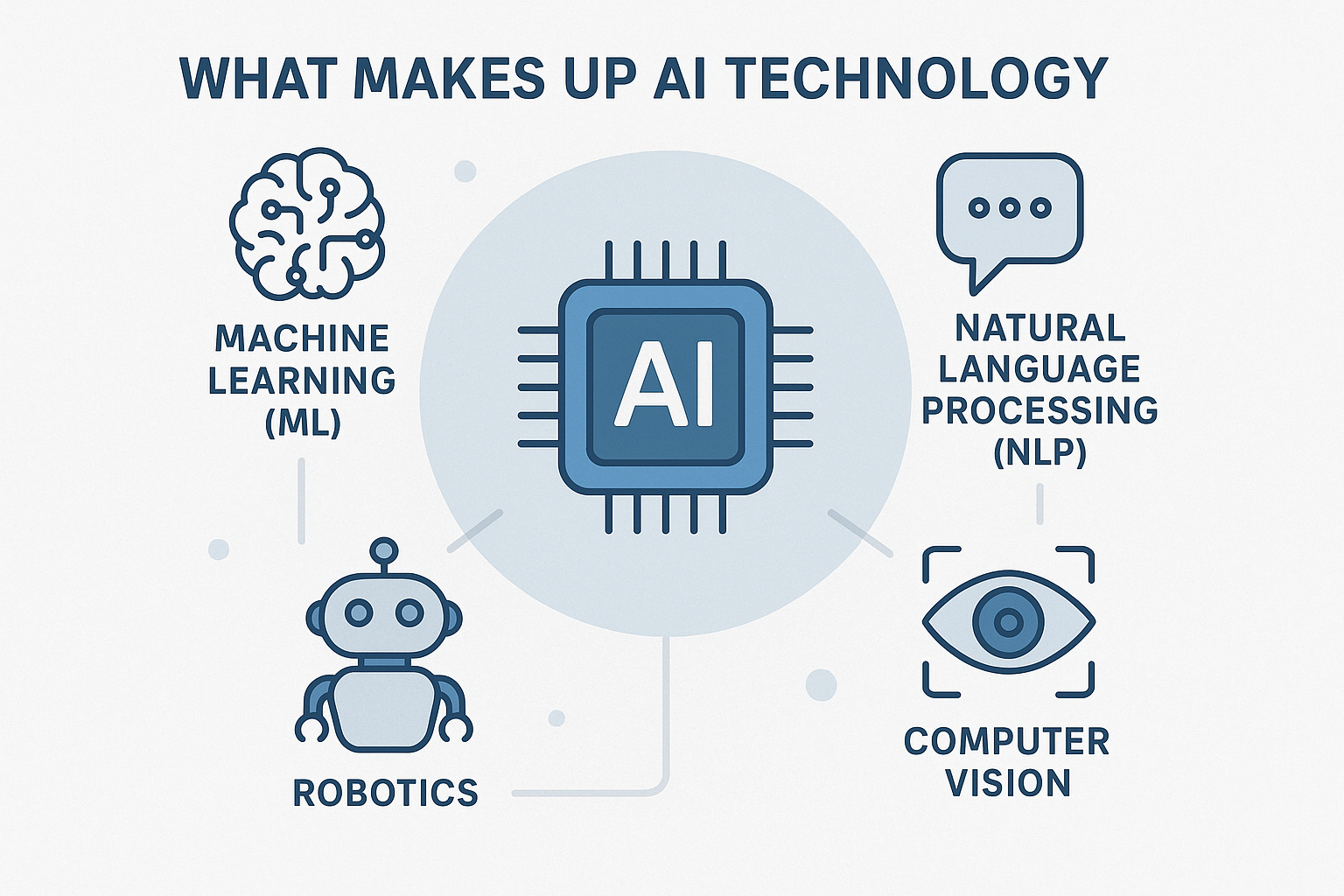
- Machine Learning (ML): Algorithms that analyze data, identify patterns, and improve automatically through experience.
- Natural Language Processing (NLP): Technology that enables machines to understand, interpret, and respond to human language.
- Computer Vision: Systems that allow machines to “see” and interpret visual information like images and videos.
- Robotics: Physical machines enhanced with AI, capable of carrying out tasks in real-world environments.
Together, these features of artificial intelligence technologies enable AI to function as more than just code; they give it the ability to adapt, make judgments, and evolve with new information. AI is increasingly integrated into marketing automation tools, enabling businesses to automate tasks like personalized email campaigns, customer segmentation, and lead nurturing based on user behavior.
What are the Benefits of AI in Business?
Businesses across industries are adopting AI because of the clear value it delivers. Some benefits include:
- Efficiency: Automation reduces repetitive, manual tasks.
- Insights: AI processes massive amounts of data quickly, uncovering trends humans might miss.
- Customer Experience: Personalized recommendations and intelligent support systems improve customer satisfaction.
- Cost Reduction: Streamlined operations lower overhead and resource waste.
Consider the entertainment world; an entertainment marketing agency can use AI to predict content trends, analyze audience sentiment, and optimize ad placements. This ensures campaigns land at the right time with maximum impact, reducing wasted budget and improving returns.
Explore Our Tech Marketing Agency
4 Risks or Challenges Does AI Bring
Despite its promise, AI isn’t without risks. Common concerns include:
- Data Privacy: Collecting and processing personal data requires strict safeguards.
- Bias: AI systems can reflect and amplify biases present in their training data.
- Job Displacement: Automation raises concerns about replacing human roles in some industries.
- Complexity: Implementing AI requires infrastructure and expertise that many businesses lack.
However, for a premium Luxury branding agency, these challenges are especially critical. AI must be applied carefully to protect brand reputation, ensuring personalization feels exclusive without crossing into intrusion.
How Companies Adopt AI Responsibly?
AI adoption is most successful when approached strategically. Businesses should:
- Start Small: Pilot AI in specific areas before expanding.
- Set Ethical Guidelines: Ensure AI use aligns with brand values.
- Invest in Skills: Equip teams with the training needed to manage AI responsibly.
Real-World Applications of AI Technology?
AI has moved beyond labs and into nearly every industry. Some of the most impactful applications include:
- Healthcare: AI supports diagnostics, from reading X-rays to predicting disease outbreaks.
- Retail: Personalized shopping experiences are created using recommendation engines.
- Marketing: Predictive analytics help brands anticipate customer needs and behavior.
- Transportation: AI powers autonomous vehicles and route optimization.
The Role of AI in Nonprofits and Social Impact
AI isn’t just for profit-driven companies. Nonprofits are using AI to achieve more with limited resources. Some applications include:
- Identifying high-value donors.
- Predicting which campaigns will be most effective.
- Optimizing resource allocation in community programs.
For Example, a nonprofit marketing agency might use AI to analyze donor behavior and launch personalized outreach at scale. This ensures funds are used efficiently while maximizing campaign impact.
What Can Tech-Driven Enterprises Achieve With AI?
For technology-first organizations, AI isn’t optional; it’s essential. These businesses leverage AI to innovate faster, automate internal workflows, and deliver cutting-edge products and services.
A tech marketing agency might implement AI within collaboration tools to automate document tagging, streamline search, or predict project bottlenecks. These improvements not only save time but also create a more connected digital workplace.
AI’s Impact on Banking and Financial Services
The banking and financial industries were among the earliest adopters of AI. Applications include:
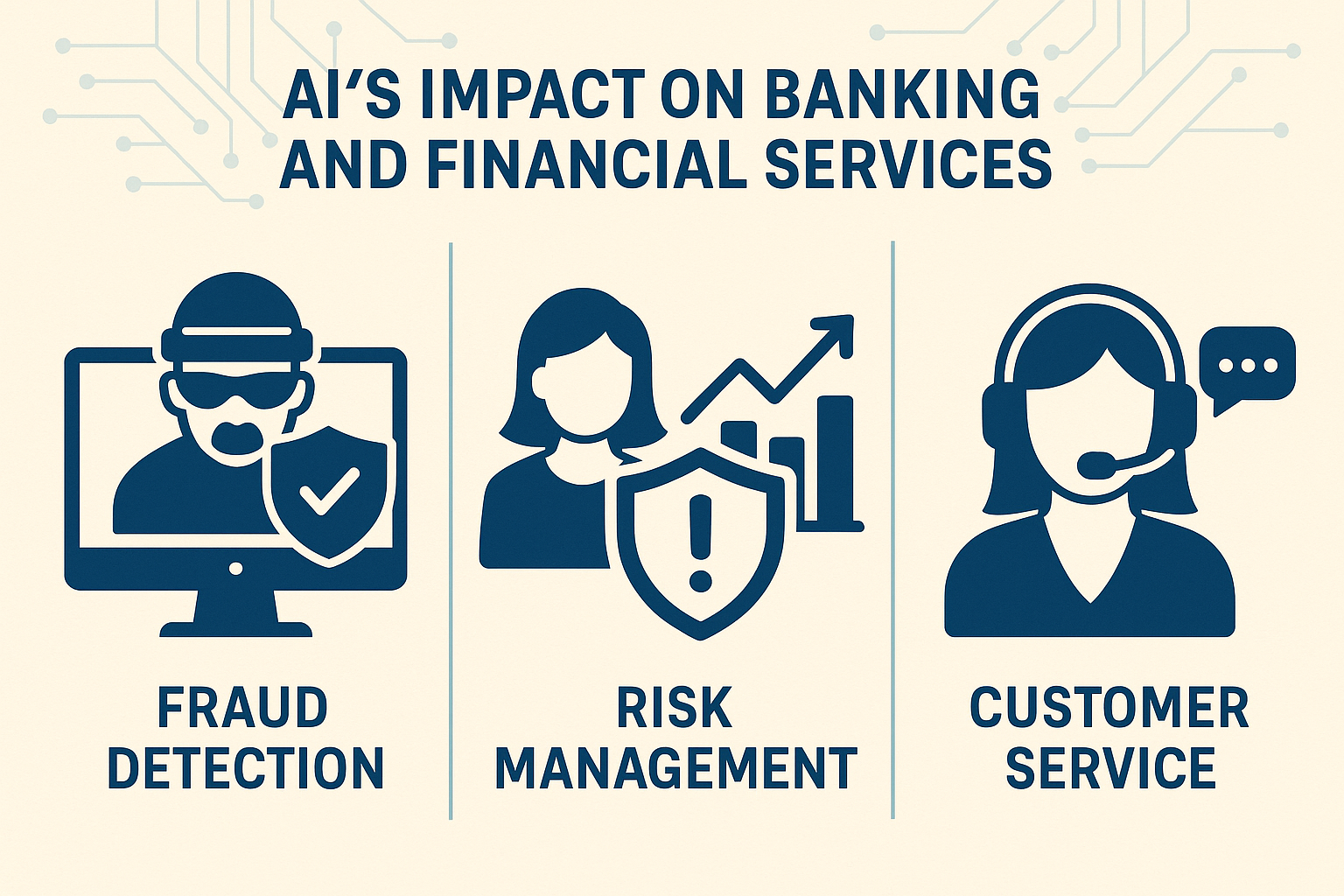
- Fraud Detection: Spotting unusual activity in real time.
- Risk Management: Predicting market shifts or loan risks.
- Customer Service: Chatbots and digital assistants handling queries around the clock.
For a banking and financial marketing agency, AI creates new opportunities to connect with clients. From personalized financial advice to smarter SEO-driven campaigns, AI allows institutions to serve digital-first customers with precision and trust.
What’s the Future of AI Technology?
The future of AI lies in how it integrates with other technologies. Current trends include:
- AI + IoT: Smart devices that learn and adapt to users’ needs.
- Hyperautomation: Entire workflows driven by AI with minimal human oversight.
- Ethical AI: Frameworks to ensure AI is applied responsibly and transparently.
- Industry Specialization: AI customized for niche business needs.
For example, an automotive marketing agency may soon rely on AI not only to analyze customer buying trends but also to personalize in-car digital experiences. With such changes, AI will shift from being a back-end tool to becoming a customer-facing differentiator.
Frequently Asked Questions (FAQs)
What do you mean by AI technology?
AI technology is when machines or software are designed to think, learn, and solve problems like humans, for example, chatbots or recommendation systems.
What are the 4 types of AI?
The main types include machine learning, natural language processing, computer vision, and robotics. Each helps AI perform different intelligent tasks.
How is AI Used in Everyday Life?
AI powers voice assistants, online shopping recommendations, spam filters in email, facial recognition, and even navigation apps like Google Maps.
What is AI Mostly Used For?
AI is used for tasks like data analysis, speech and image recognition, automation, and decision-making.
Can AI Replace Human Intelligence?
AI can perform specific tasks but cannot fully replicate human intelligence or creativity.
What Industries Benefit the Most from AI?
AI is widely used in healthcare, finance, retail, real estate, automotive, travel, and entertainment for tasks like personalization, fraud detection, and predictive insights.
What are the Risks of AI?
Risks include data privacy concerns, bias in algorithms, job automation, and over-reliance on systems without human oversight.
Conclusion
What Is AI Technology? AI technology is no longer an experimental idea; it is a central driver of transformation across industries. From enhancing customer experiences to streamlining complex operations, AI has already proven its ability to deliver measurable impact. Its potential, however, extends far beyond today’s applications. As advancements in machine learning, robotics, and natural language processing accelerate, AI will continue to open possibilities that once felt unimaginable.
Centric helps businesses harness AI responsibly, combining deep technical expertise with an understanding of industry-specific needs. Our approach ensures that AI adoption is not only innovative but also ethical, scalable, and aligned with long-term goals.
The future of AI belongs to enterprises that prioritize both progress and people, ensuring technology works for humanity rather than replacing it. The question is no longer whether businesses should embrace AI, but rather how they will utilize it and with whom they will partner to shape a smarter, more responsible future.
